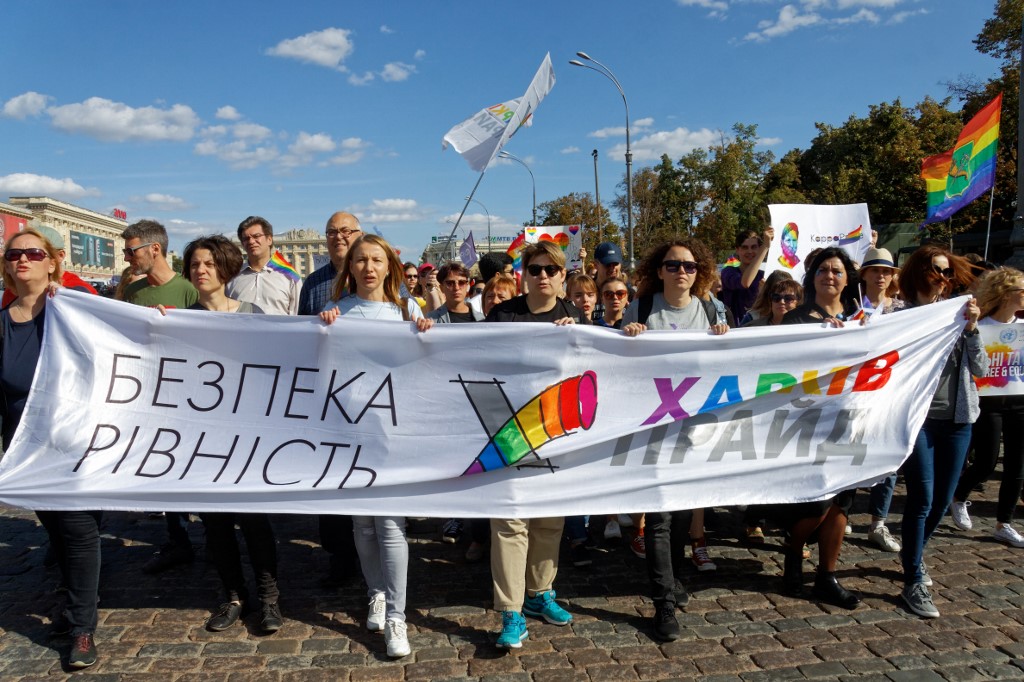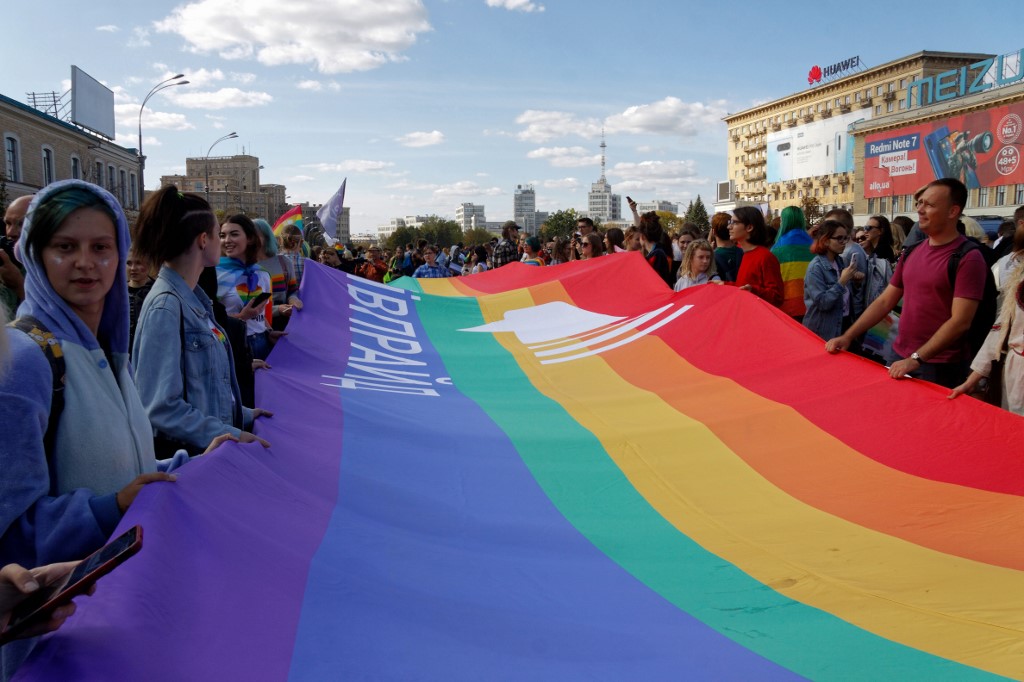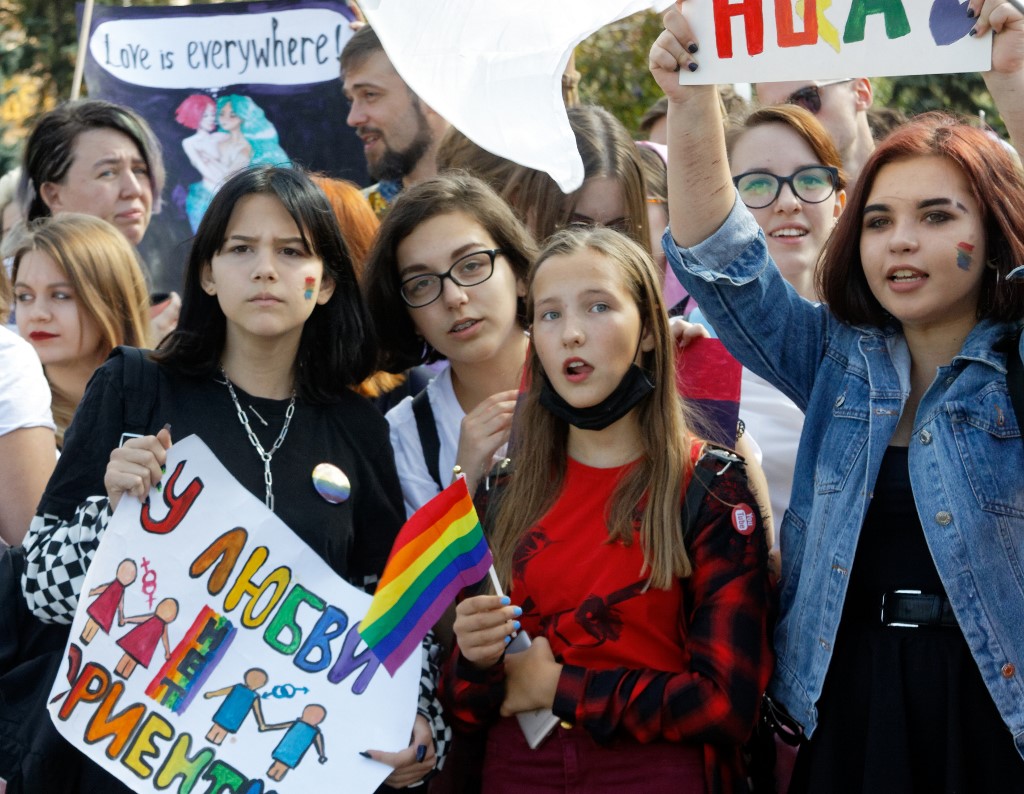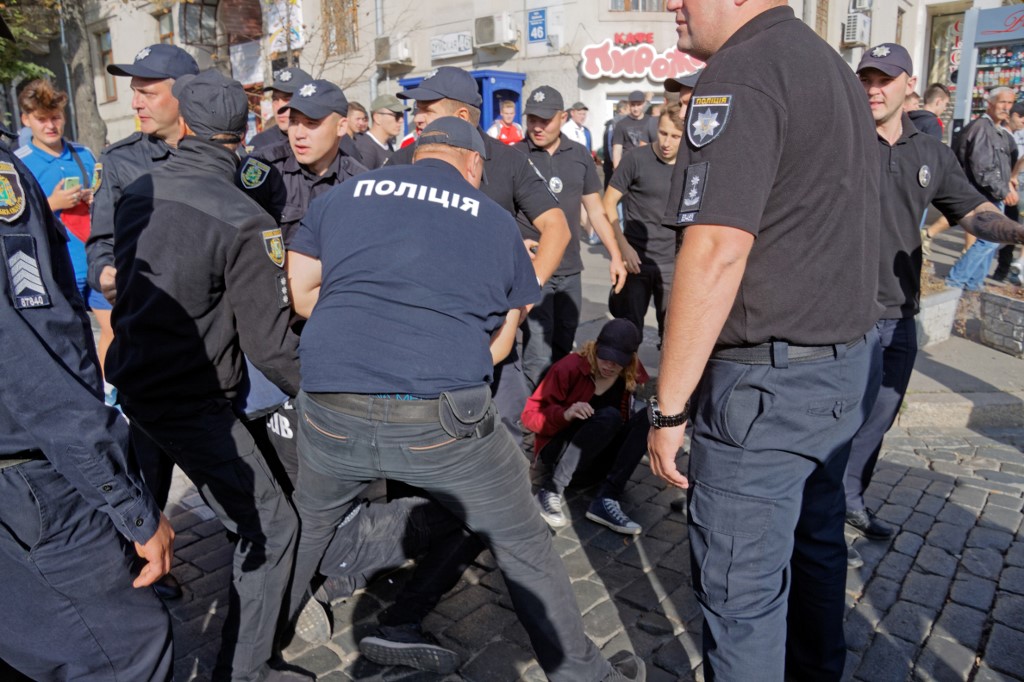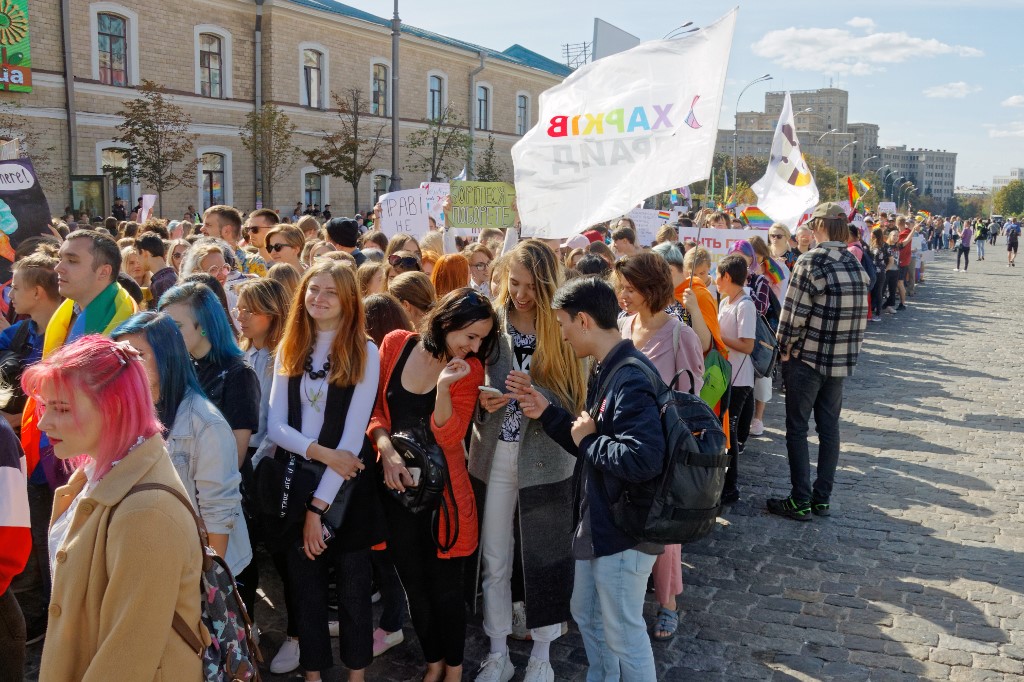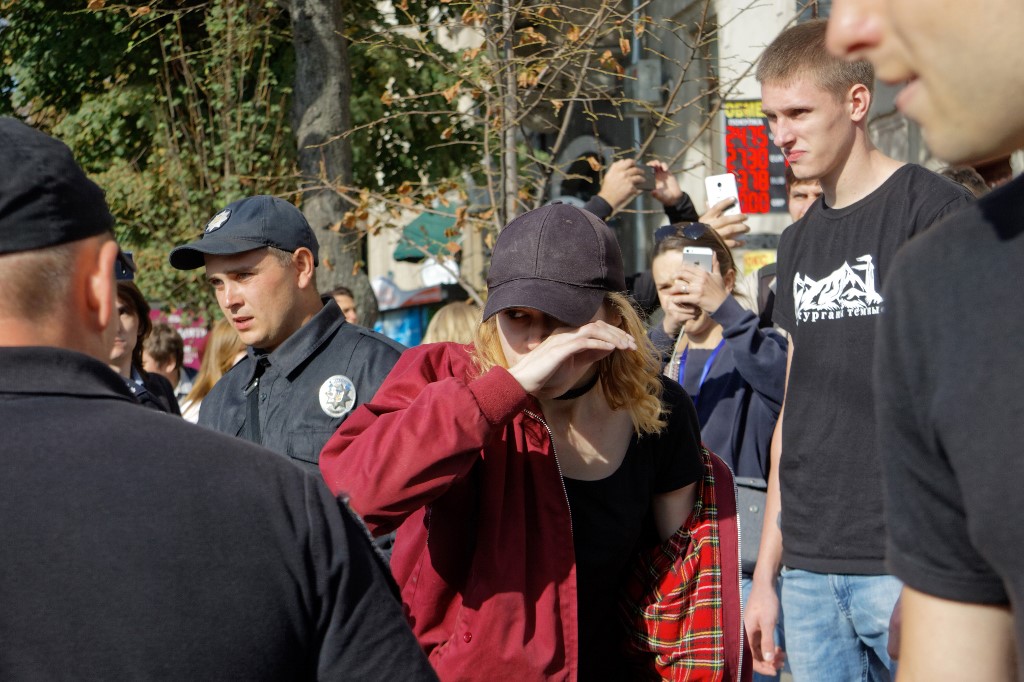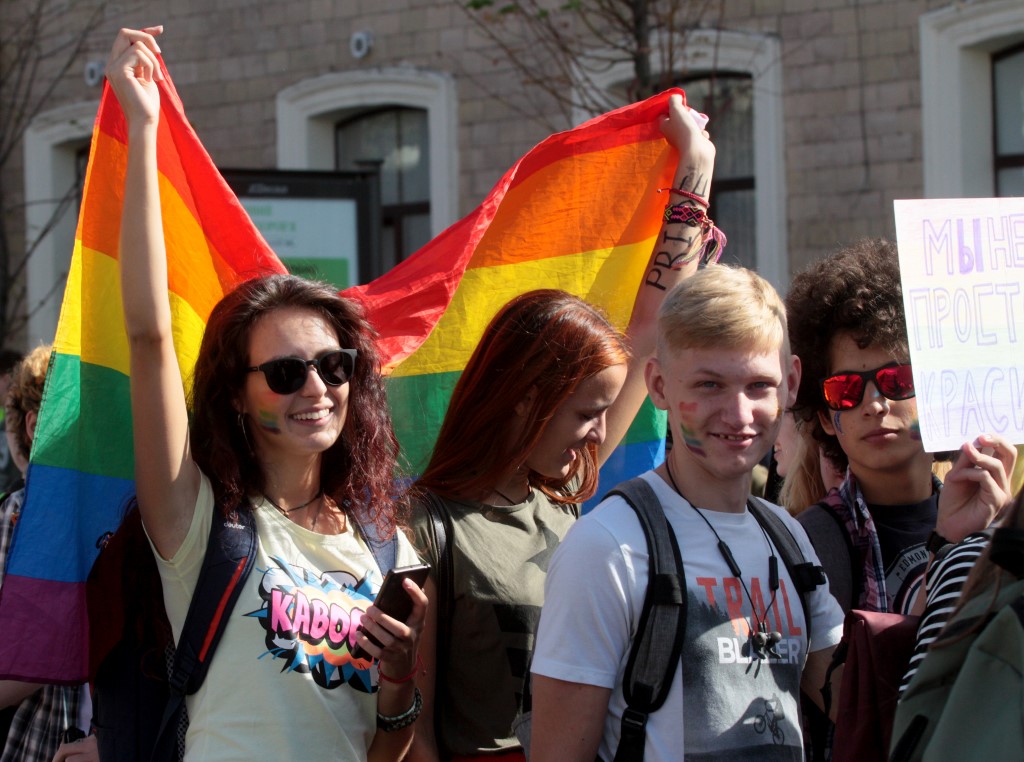Activists in Kharkiv have held the eastern Ukrainian city’s first-ever pride march, bringing the widespread procession in support of lesbian, gay, bisexual, transgender and queer (LGBTQ) rights to yet another Ukrainian city.
KharkivPride — as the march was titled — started on Sunday, Sept. 16 at Svobody Square and ended on Konstitutsii Square in downtown Kharkiv, a megalopolis of 1.4 million people just 40 kilometers from the Russian border. Organizers deemed it a success, despite several acts of violence in the run-up to and following the march.
Vira Chernyhina, president of the Sphere women’s association, said before the event that “KharkivPride would be the beginning of real steps toward equality between men, women, and (all) people irrespective of their (sexual) orientation, gender identity, or any other characteristics.”
However, that message is not popular among many in Ukraine. KharkivPride faced opposition from Kharkiv Mayor Hennadiy Kernes, far-right groups, and “traditionalists” in the city.
Opponents of the LGBTQ demonstration held their own march in support of traditional values on the same day. KharkivPride attracted about 2000 participants, while the countermarch brought out around 500.
Bumpy road
In the run-up to KharkiPride, opponents tried to have it banned. A petition submitted to the website of the Kharkiv City Council received 5,837 signatures. If a petition receives more than 5,000, the city council must deliberate on it.
As the petition gained support, Kernes expressed his intention to take the matter to court. Meanwhile, march organizers and lawyers said that the petition ran contrary to the Ukrainian Constitution.
To be legal, a petition must not feature propaganda of violence or hatred and cannot contain attempts to encroach on the rights of citizens.
As the petition and the mayor’s position were legally weak, the document never went to court.
On Sept. 12, a few days before the KharkivPride march, far-right groups pelted Oles Doniy, a former member of the Ukrainian parliament, with brilliant green, a green-colored antiseptic. Doniy was scheduled to deliver a lecture on tolerance as an element of the modern Ukrainian ideology on that day. He eventually delivered his lecture at the Museum of Literature.
Many police, some attacks
Like previous Ukrainian LGBTQ marches, KharkivPride required a significant police presence, as well as reinforcements from the National Guard and special units from other regions with “experience in upholding public peace in major cities,” said Valeriy Sokurenko, chief of the Kharkiv Oblast police.
Sokurenko said law enforcement would guard the march itself, but also ensure public order afterwards “to avoid situations when the event is over in downtown Kharkiv, but later some people turn on each other on the outskirts of the city.”
Participants in KharkivPride safely marched through the city. However, after the event, some members of far-right groups attacked march participants and clashed with the police.
The police detained 17 attackers and opened two criminal cases. Two policemen were injured while guarding the march.
The German Embassy in Ukraine expressed concerns over the attacks. Several German diplomats participated in the march.
